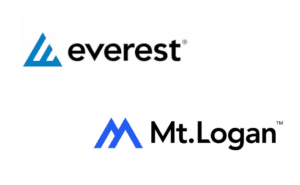Who pays health insurance?
Who pays health insurance?
Employers pay 83% of health insurance for single coverage On average, employers paid 83% of the premium, or $6,200 a year. Employees paid the remaining 17%, or $1,270 a year. For family coverage, the standard insurance policy totaled $21,342 a year with employers contributing, on average, 73%, or $15,579. Sep 24, 2021
How many types of health insurance are there?
Types of Health Insurance in India Types of Health Insurance Plans Suitable For Individual Health Insurance Individual Family Health Insurance Entire Family- Self, Spouse, Children, and Parents Critical Illness Insurance Used for funding expensive treatments Senior Citizen Health Insurance Citizens of age 65 and above 7 more rows • Mar 11, 2022
What is an example of a health plan?
Taxpayer-funded: funded by federal and state taxes; examples are Medicare, Medicaid and Children’s Health Insurance Program (CHIP) Private-funded: provided primarily through employer-sponsored plans; examples are Blue Cross and Blue Shield plans, non-Blue commercial plans, HMOs and self-funded employer plans.
Is Blue Cross Blue Shield Good?
Is Blue Cross Blue Shield Good Health Insurance? Blue Cross Blue Shield (BCBS) is a highly rated, quality health insurance provider that offers a large network and extensive coverage but has higher-than-average premiums. … Blue Cross Blue Shield Health Insurance Overview. Company founded 1929 NCQA rating 4 to 3 6 more rows
Is HMO or PPO better?
HMO plans typically have lower monthly premiums. You can also expect to pay less out of pocket. PPOs tend to have higher monthly premiums in exchange for the flexibility to use providers both in and out of network without a referral. Out-of-pocket medical costs can also run higher with a PPO plan. Sep 19, 2017
How safe is Fidelity Investments?
Fidelity is a US stockbroker founded in 1946. It is regulated by top-tier authorities like the Securities and Exchange Commission (SEC) and the Financial Industry Regulatory Authority (FINRA). Fidelity is considered safe because it has a long track record and is regulated by top-tier financial authorities.
Which Fidelity funds are FDIC insured?
What is eligible for FDIC insurance at Fidelity? The Fidelity® Cash Management Account. Certain eligible Fidelity retirement accounts such as Traditional, Rollover, and SEP IRAs; Fidelity Roth IRAs, Fidelity SIMPLE IRAs. Fidelity Health Savings Account.
Is my fidelity 401k FDIC insured?
The Federal Deposit Insurance Corporation (FDIC) covers deposits, not investments. 1 This is why 401(k) plans are not FDIC-insured—most are composed primarily of investments, which are riskier.
Is a brokerage account FDIC insured?
FDIC insurance covers brokered CDs owned in brokerage accounts and deposits in FDIC member federal banking institutions, such as banks and savings associations. FDIC insurance currently provides $250,000 per depositor, per insured bank, for each ownership category.
What happens if Fidelity goes out of business?
If a brokerage fails, another financial firm may agree to buy the firm’s assets and accounts will be transferred to the new custodian with little interruption. The government also provides insurance, known as SIPC coverage, on up to $500,000 of securities or $250,000 of cash held at a brokerage firm.
Is Fidelity financially stable?
Fitch Ratings – Chicago – 01 Jun 2020: Fitch Ratings has affirmed with a Stable Rating Outlook Fidelity National Financial, Inc.’s (FNF) ‘BBB+’ Long-term Issuer Default Rating (IDR), ‘BBB’ Senior Unsecured Rating and the ‘A’ (strong) Insurer Financial Strength (IFS) ratings on FNF’s rated operating subsidiaries. Jun 1, 2020
Is Fidelity money market FDIC-insured?
While not insured by the FDIC, the funds are required by federal regulations to invest in short-maturity, low-risk investments, making them less prone to market fluctuations than many other types of investments.
Is Fidelity IRA FDIC-insured?
The coverage maximum for IRAs and brokerage accounts is $250,000 per bank. All FDIC insurance coverage is in accordance with FDIC rules. For further information, please visit fdic.gov.
Can I use Fidelity as a bank?
The Fidelity Cash Management account is technically a brokerage account, which means it’s not a bank account and doesn’t have the same regulations that a bank would have. The FDIC insurance that Fidelity offers comes from the partner banks that Fidelity works with.
Are 401 K funds insured?
Assets held in your company’s 401(k) account are not insured in the way the government-run FDIC protects bank accounts or the industry-run SIPC protects brokerage funds. Sep 19, 2008






